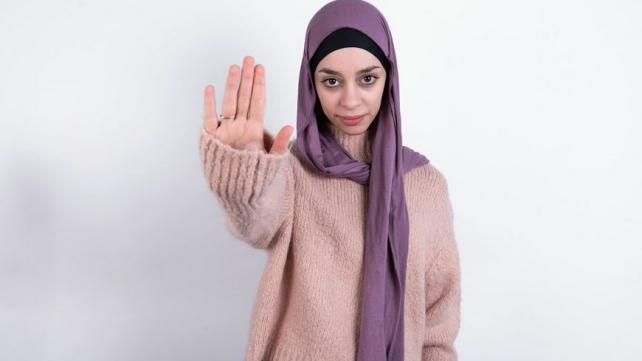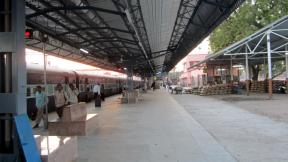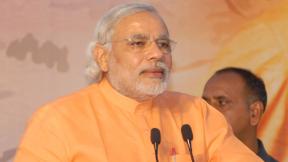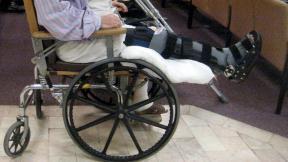
In recent decades, the Muslim community in the United States has become increasingly diverse, with Latino Muslims emerging as one of the fastest-growing groups. Despite this positive trend, many Latin American Muslims face unique challenges, including subtle forms of exclusion, discrimination, and microaggressions within our own religious spaces. When these hostilities occur because of their ethnicity, culture, or language, it could be due to a form of racial bias called Hispanophobia or anti-Spanish sentiment. Hispanophobia is the irrational fear or aversion to anything Hispanic or Spanish, including the language, which has become the second most spoken in the U.S.1 Just like other forms of discrimination like anti-blackness, xenophobia, and classism, Hispanophobia has no place in Islam.
As parents, educators, and religious leaders, it is our responsibility to recognize and address these issues to create an inclusive environment where all members of the ummah—including Latino Muslims—feel seen, respected, and supported. To create communities that honor the diversity within Islam, we must begin at home and in our schools. These are the places where values of respect, hospitality, and understanding should be nurtured from an early age. Whether you are a parent teaching your children about diversity, an Islamic school teacher shaping young minds, or an imam providing guidance, the way you address issues like Hispanophobia has a lasting impact.
Recognizing Hispanophobia
Latino Muslims are often on the receiving end of a variety of stereotypes and assumptions within the Muslim community. Despite Islam’s emphasis on equality, biases can still surface, leading to misconceptions about Latino Muslims' level of religious knowledge or cultural backgrounds. These biases are not always overt but can manifest in subtle ways—such as microaggressions like “You don’t look Muslim” or the assumption that Latino Muslims are new converts, or they lack Islamic knowledge.
There is no such thing as a “Muslim look,” not all Latino Muslims are converts, and many Latinos have studied Islam for years. Now that we have debunked those myths, we can talk about other manifestations of anti-Spanish or anti-Latino bigotry. Sadly, as a Latina Muslim with Latino Muslim children, my family and I have experienced firsthand what Hispanophobia can look like. Here are some examples:
1. Stereotyping based on ethnicity.
Assuming that all Latinos are recent immigrants, work blue-collar jobs, or they all speak poor English are some common stereotypes. Another is associating Latinos with crime, drugs, or gang activity and this trend has gained popularity in recent years due to inflammatory rhetoric from politicians and sensationalized media portrayals. Public figures, particularly during political campaigns, have often scapegoated Latino communities, linking them to criminal behavior and illegal immigration, which reinforces these harmful perceptions in broader society. These negative views seep into our religious spaces, making Latino Muslims feel unwelcome or mistrusted.
2. Questioning religious authenticity.
Asking a Latino Muslim if they are “really” Muslim is totally inappropriate. I have heard this one myself, even while wearing hijab and after exchanging salaams with the person! Some Muslims believe that Latinos cannot possibly accept Islam or know anything about it. Sadly they may not even bother to share their faith with Latino neighbors, coworkers, or colleagues because they view them as undeserving or second-class citizens.
3. Tokenism and exclusion from leadership roles.
Oftentimes, Latino Muslims are invited to events or panels only during Hispanic Heritage Month but are excluded them from regular discussions or leadership roles in Islamic organizations because of assumptions about their background or knowledge. While having a Hispanic heritage event is progress and we are not complaining, I know we can do better.
4. Cultural erasure.
Ignoring or downplaying the contributions of Latino Muslims in Islamic spaces, such as never discussing the historical ties between Islam and Latin America, is also common. Additionally, telling a Latino they have to change their culture in order to be a “true” Muslim including their language, style of dress, and even name (regardless of whether it is considered a good name).
5. Perpetuating language barriers.
Failing to provide resources or religious materials in Spanish can leave Spanish-speaking Muslims feeling disconnected or marginalized. Or the opposite is also problematic – passing off the responsibility of speaking to or teaching a Latino to someone who speaks Spanish even when they are fluent English speakers.
6. Microaggressions.
Making comments like:
- “You can’t be Muslim because you are Latino.”
- “Oh, you’re Latino, can you bring tacos for iftar?”
- “I would never let my son/daughter marry a Latino.”
- “You must have converted because of a man.”
Are you shocked by these statements? I have personally heard every single one of them. All these inappropriate and unnecessary remarks undermine an individual’s identity and experiences, not to mention they may even push people away from the Muslim community altogether.
7. Discriminatory treatment in masajid and Islamic schools.
In many Muslim spaces, there is a tendency to impose cultural interpretations of Islam from other ethnic groups, without acknowledging or respecting the unique cultural practices or perspectives of Latino Muslims. Sadly, some Latino students or community members may experience more scrutiny or abuse because of their appearance, accent, or ethnic background.
Educators and parents need to be aware of these issues because they affect how children, students, and families feel within the community. These expressions of Hispanophobia including the seemingly benign casual remarks, create an environment where Latino Muslims feel othered, excluded, or less valued than their peers.
Our Role as Parents and Educators
Children are deeply influenced by the attitudes and behaviors of the adults around them. Here are some affirmative ways that we can all do better to eradicate Hispanophobia.
As parents, it is our job to model inclusive behavior at home, showing children that Muslims come from diverse backgrounds and cultures. This involves teaching them not to make assumptions based on someone’s ethnicity or appearance and encouraging curiosity about the broad diversity within the Muslim world. Conversations about diversity should be regular, open, and honest. Parents can start these discussions at home by encouraging their children to ask questions and explore different cultures within the Muslim world.
In the classroom, educators play an equally important role. Islamic education should reflect the diversity of the ummah in both curriculum and cultural representation. When Latino Muslim students do not see themselves reflected in the teachings or activities, it can lead to feelings of isolation. As a Latina children’s author striving to bring more representation to Islamic literature, I have received feedback from school administrators, teachers, and parents about how even a single book featuring a Latino character has made their students feel seen, happy, and included. By incorporating the stories, histories, and contributions of Latino Muslims into lessons, educators can help all students feel that same sense of belonging.
To foster an even more welcoming environment, Islamic schools and mosques can highlight the historical and cultural ties between Islam and Latin America. Many students and even educators may not know that Islam has a long history in Latin America, dating back to the Moorish influence in Spain and the arrival of enslaved Muslim Africans during the colonial period. Incorporating these lessons into Islamic school curricula helps students understand that Muslims have always been part of the Latin American landscape, and that Latino Muslims today are the inheritors of a rich, ongoing legacy.
Inviting Latino Muslim speakers, educators, and community members to share their experiences is another powerful way to engage students and foster inclusivity. Hispanic Heritage Month is a great opportunity to showcase the contributions of Latino Muslims, but we should not limit these celebrations to just one time of the year. Schools and mosques can integrate Latino Muslim contributions into their activities year-round, through events, educational programs, and outreach initiatives.
We must acknowledge that some (but not all) Latino Muslims, particularly those from immigrant backgrounds or recent converts, may primarily speak Spanish. Unfortunately, Islamic schools and mosques often lack sufficient resources in Spanish, making participation challenging for these families. Parents and educators must join hands in advocating for bilingual resources, such as Quran translations, Islamic books, and lectures in Spanish, to ensure Spanish-speaking Muslims and their families can connect with the community. Schools can also create multicultural events that highlight the experiences and heritage of Latino Muslims to encourage a sense of pride among Latino students while educating all children about the rich cultural diversity within Islam. Adding Spanish as a foreign language to our schools would be another great way to teach our children the importance of knowing our Latino neighbors.
To combat microaggressions, those subtle, ugly, albeit unintentional discriminatory comments or actions, educators and parents can address and correct children early on to prevent this conduct from taking root. The first step is recognizing them and then explaining why they are unacceptable. Microaggressions can include offhand remarks about someone’s appearance (“He looks more Mexican than Muslim!”), culture (“I bet you love tacos!”), or assumptions about their knowledge of Islam based on their ethnicity (“How would you know, you’re just a convert.”). Allah offers us a stern warning in the Quran:
“O believers! Do not let some ˹men˺ ridicule others, they may be better than them, nor let ˹some˺ women ridicule other women, they may be better than them. Do not defame one another, nor call each other by offensive nicknames. How evil it is to act rebelliously after having faith! And whoever does not repent, it is they who are the ˹true˺ wrongdoers.”
(Surah Al-Hujarat, 49:11)
Additionally, the Prophet Muhammad, peace and blessings be upon him, said:
“The believer does not insult others, he does not curse others, he is not vulgar, and he is not shameless.”
(Sunan al-Tirmidhi)
Educators and parents need to be mindful of how such mocking affect the mental and emotional well-being of Latino Muslims. Islamic school administrators have a duty to consider cultural awareness and sensitivity training for their staff to help them identify and prevent microaggressions and other forms of discrimination. Likewise, parents should talk to their children about the importance of respecting others’ cultural and religious experiences and avoiding harmful assumptions. The latter may be the most critical because these discriminatory attitudes and beliefs are often embedded in families. It is up to us to break those harmful cycles by checking ourselves and our own biases.
Addressing Hispanophobia in our homes, schools, and mosques requires deliberate effort from parents, educators, and religious leaders. This courtesy should extend not just to our Muslim Latino brothers and sisters, but also to non-Muslims of Latin heritage. When it comes to our Islamic communities, however, if we wish to create an environment where everyone feels valued and included regardless of their background, we must also value and support Latin American Muslims. Through culturally responsive education, open dialogue, and active inclusion, we can model for our children the true spirit of Islam, one that celebrates diversity, promotes unity, and uplifts all members of the ummah so we can be stronger together.
End Notes
1 Hispanophobia: a glimpse of deepened racism against the Latino community - Peninsula 360 Press
Wendy Díaz is a Puerto Rican Muslim writer, award-winning poet, translator, and mother of six (ages ranging from infant to teen). She is the co-founder of Hablamos Islam, a non-profit organization that produces educational resources about Islam in Spanish (hablamosislam.org). She has written, illustrated, and published over a dozen children’s books and currently lives with her family in Maryland. Follow Wendy Díaz on social media @authorwendydiaz and @hablamosislam.








Add new comment